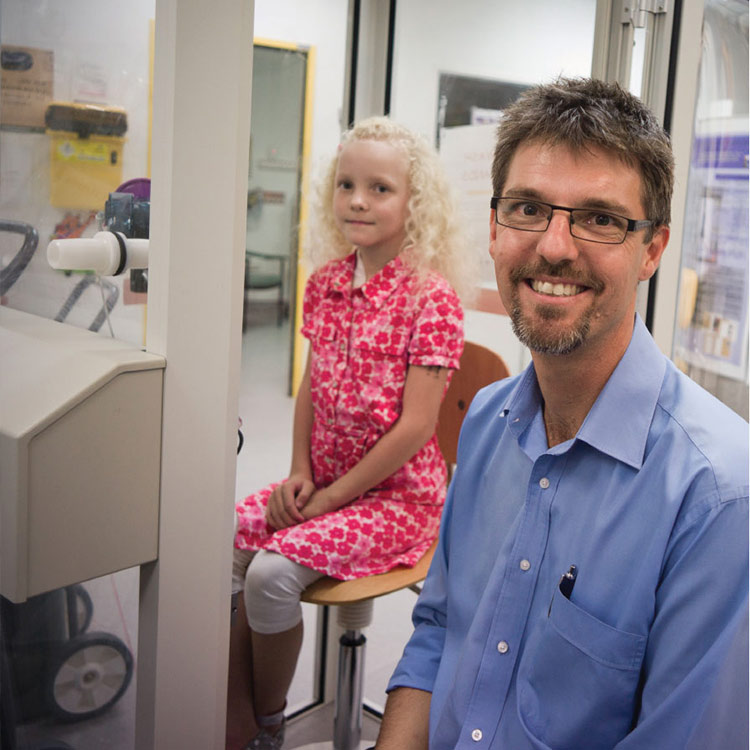Search
Showing results for "early life"

Life expectancy was in the 20s for children born with cystic fibrosis 30 years ago, today it is in the 30s. Professor Graham Hall is leading this research.
Research
Distribution of Early Structural Lung Changes due to Cystic Fibrosis Detected with Chest Computed TomographyTo examine the distribution of early structural lung changes in clinically stable infants and young children with cystic fibrosis using chest computed...
Research
In utero exposure to arsenic alters lung development and genes related to immune and mucociliary function in miceIn utero exposure to arsenic via drinking water increases the risk of lower respiratory tract infections during infancy and mortality from bronchiectasis in...
The early years of life are characterised by significant opportunity, rapid change and accelerated development which is unparalleled by any other stage.
Research
The role of dendritic cells and regulatory T cells in the regulation of allergic asthmaAirways hyperresponsiveness (AHR) is one of the major clinical features of allergic airways disease including allergic asthma

Research
Identifying social pathways to enhanced life outcomes in Aboriginal and Torres Strait Islander childrenCarrington Shepherd PhD Honorary Research Associate Honorary Research Associate Areas of research expertise: Population health; Aboriginal and Torres
Research
Editorial overview: The physiology of the diseased lungAlexander Larcombe BScEnv (Hons) PhD Honorary Research Fellow Honorary Research Fellow Associate Professor Alexander Larcombe began work at The Kids
Research
National E-cigarette Monitoring and Evidence Consortium: Supporting informed research, policy and practice in AustraliaAlexander Larcombe BScEnv (Hons) PhD Honorary Research Fellow Honorary Research Fellow Associate Professor Alexander Larcombe began work at The Kids
Research
Presence of onco-fetal neighborhoods in hepatocellular carcinoma is associated with relapse and response to immunotherapyOnco-fetal reprogramming of the tumor ecosystem induces fetal developmental signatures in the tumor microenvironment, leading to immunosuppressive features. Here, we employed single-cell RNA sequencing, spatial transcriptomics and bulk RNA sequencing to delineate specific cell subsets involved in hepatocellular carcinoma relapse and response to immunotherapy.
